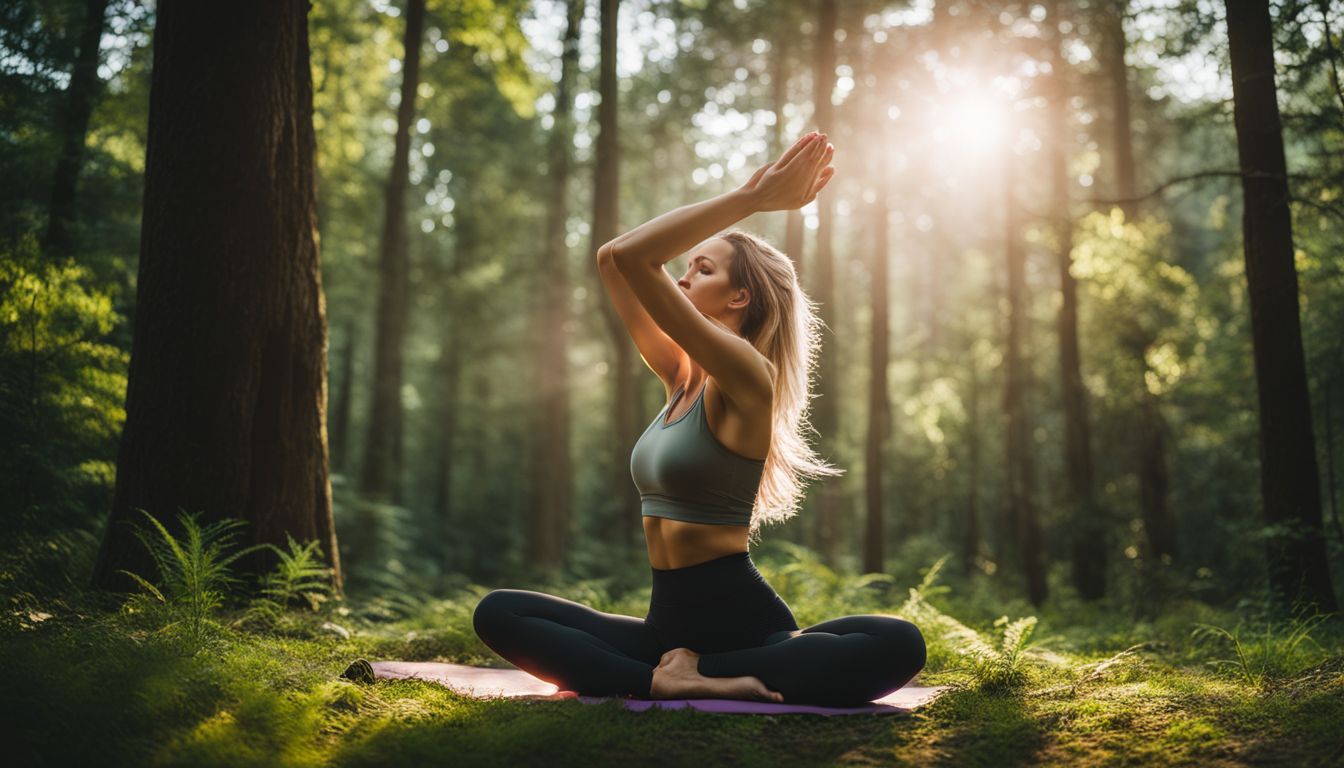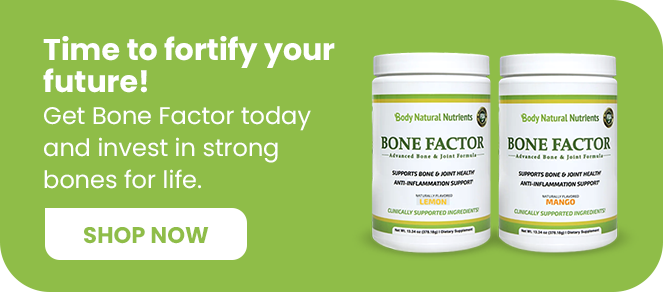Everyone thinks they know what keeps bones strong. Drink milk, avoid heavy lifting, and don’t worry until you’re older, right? Wrong. There’s a sea of bone health myths that many fall for without a second thought.
It’s time to set the record straight: not everything you’ve heard is true.
Here’s a fact – our bones are much more than just the frame holding us up; they’re alive, changing, and crucial to our overall health. In this blog post, we’ll separate myth from reality and give you clear steps to keep your skeleton happy and healthy.
Ready for some truths? Keep reading.
Key Takeaways of Bone Health Myths
- Bones need more than calcium from dairy. Eating dark leafy greens, nuts, and getting sunshine for vitamin D also keeps them strong.
- Both men and women can get osteoporosis. Doing weight – bearing exercises like walking helps keep bones dense at any age.
- A bone density test doesn’t hurt. It’s a quick way to check if your bones are healthy.
- Healthy eating and exercise are key to preventing bone loss as you age. Include foods rich in calcium, vitamin D, and do activities that make you work against gravity.
- Avoid smoking and drinking too much soda or alcohol to protect your bones. Choose water instead to help keep them strong.
Debunking Everything We Know About Bone Health Myths
Okay, let’s clear up some bone health myths about keeping bones strong. For starters, you might think only milk and cheese make bones tough – not true! Also, it’s a myth that only ladies get osteoporosis or that checking bone thickness hurts like stepping on a Lego.
Nope!
Myth: Only Dairy Products Strengthen Bones
Milk, cheese, and yogurt are not the only friends of your bones. True, they’re packed with calcium. But so are dark leafy greens like spinach and kale, as well as tofu and almonds.
Your body also needs vitamin D to help absorb that calcium. Sunshine is a great source of vitamin D. A little sun exposure can boost your levels.
Your skeleton craves more than just calcium and vitamin D. Think about adding foods rich in magnesium (like nuts and seeds), potassium (found in fruits like bananas), and vitamin K (green veggies ace this).
These nutrients work together to keep your bones tough like a superhero team fighting against brittle bones.
Myth: Only Women are Affected by Osteoporosis
Osteoporosis doesn’t pick sides between men and women. Sure, after menopause, women have a higher chance of getting it because their estrogen levels go down. Estrogen helps keep bones strong.
But men are not off the hook! As they age, their risk goes up too. Things like low testosterone can make their bones weaker. It’s all about the balance of hormones in your body.
Both guys and gals need to watch out for signs of weak bones. They should eat foods rich in calcium and vitamin D, do exercises that make them carry their own weight, like walking or lifting weights, and maybe get checked with a DEXA scan if they’re at risk.
Yes, bone health is for everyone – young or old, male or female.
Myth: Bone Density Test is Painful and Complicated
A bone density test, like the dual-energy x-ray absorptiometry (DEXA) scan, might sound scary but it’s really not. This test checks how strong your bones are in a very simple way. You lie on a table while a machine takes pictures of your bones with low-dose x-rays.
It does not hurt at all and you don’t have to do any special prep beforehand.
The whole thing is quick – usually done in 10 to 20 minutes. Most people feel fine during and after the process. They can go about their day right after leaving the doctor’s office or hospital where they had the DEXA scan done.
Now, let’s move on to talk about what foods and activities help keep bones strong.
Facts about Bone Health
Bones do a lot more than just hold you up. They store minerals and make blood cells, too. Keeping them strong requires different things, not just calcium from milk. Many foods have the nutrients bones need.
Foods like green veggies, nuts, and fish are great. It’s important to eat well for good bone health.
Exercise helps bones as much as diet does. Activities that make you work against gravity – like walking, running, and lifting weights – keep bones dense. It doesn’t matter if you’re young or old; your bones can get stronger with exercise.
Also, falling hurts bones at any age so keeping active improves balance and prevents falls.
The Aging Process and Bone Health
As people get older, bones can start to lose their strength. This happens because the body becomes less good at making new bone material. Old cells break down faster than new ones can form.
This leads to conditions like osteoporosis and low bone mass. Yet, losing bone isn’t a must as you age.
Eating well plays a big role in keeping bones strong during aging. Foods rich in calcium and vitamin D are key for good bone health. Doing exercises that make you work against gravity—like walking or lifting weights—also helps keep bones dense and strong.
Next up, let’s talk about how you can maintain healthy bones through simple everyday actions.
Tips for Maintaining Healthy Bones
So, you’ve learned how aging affects your bones. Now, let’s talk about keeping them strong. Eating the right foods is key. Your body needs more than just calcium to build healthy bones.
Make sure to eat lots of fruits and vegetables that give you vitamins and minerals like vitamin D and magnesium.
Staying active helps too. Doing exercises where you carry your own weight like walking or jogging is great for bone health. Lifting weights a few times a week can also make your bones stronger.
Don’t forget to check up on your bone health with a doctor. Tests like DEXA scans show how dense your bones are, helping spot problems early. And yes, falling is bad for anyone but it’s worse if your bones are weak, so work on balance and strength to keep yourself upright.
Lastly, think about what you drink and smoke; they can hurt your bones over time. Choosing water over soda or alcohol makes a big difference in keeping those bones in tip-top shape.
FAQs (And Not Bone Health Myths)
1. Can eating lots of calcium alone keep my bones strong?
Not really… While calcium is key for bone health, you also need vitamin D to help your body use that calcium. Plus, a healthy diet and physical activities like weight-bearing exercises are super important too.
2. Is it true only old people get osteoporosis?
Nope! Osteoporosis can start earlier than you think. Factors like low estrogen levels in women after menopause, certain diseases, or not getting enough exercise can put younger folks at risk too.
3. Do men have to worry about bone health as much as women?
Yes, they do! It’s a myth that only women get osteopenia or osteoporosis. Men also lose bone density—especially if they have things like low testosterone levels, prostate cancer treatment history, or unhealthy habits.
4. If I’m fit and exercise regularly, am I safe from bone loss?
Being fit helps but doesn’t make you immune… Even active people need to check their diet for essential nutrients and avoid things that harm bones—like smoking or drinking too much alcohol.
5. Are all exercises good for strengthening bones?
Well… some are better than others! Weight-bearing and resistance exercises rock when it comes to building strong bones. So think walking, running, lifting weights—not just swimming or cycling.
6. Will taking lots of vitamin supplements protect my bones from breaking?
It’s tricky… Supplements like calcium and vitamin D help but don’t go overboard without talking to a doctor first—too much can lead to other problems like kidney stones or heart issues.
Conclusion
Keeping bones healthy is easier than you think. Forget the old tales; both men and women need to take care of their skeletons, at any age. Eat right, move more, and chuckle as you lift weights – it helps your bones too! You don’t have to drown in milk or fear every check-up.
Just live well, stay active, and enjoy strong bones for years to come.



